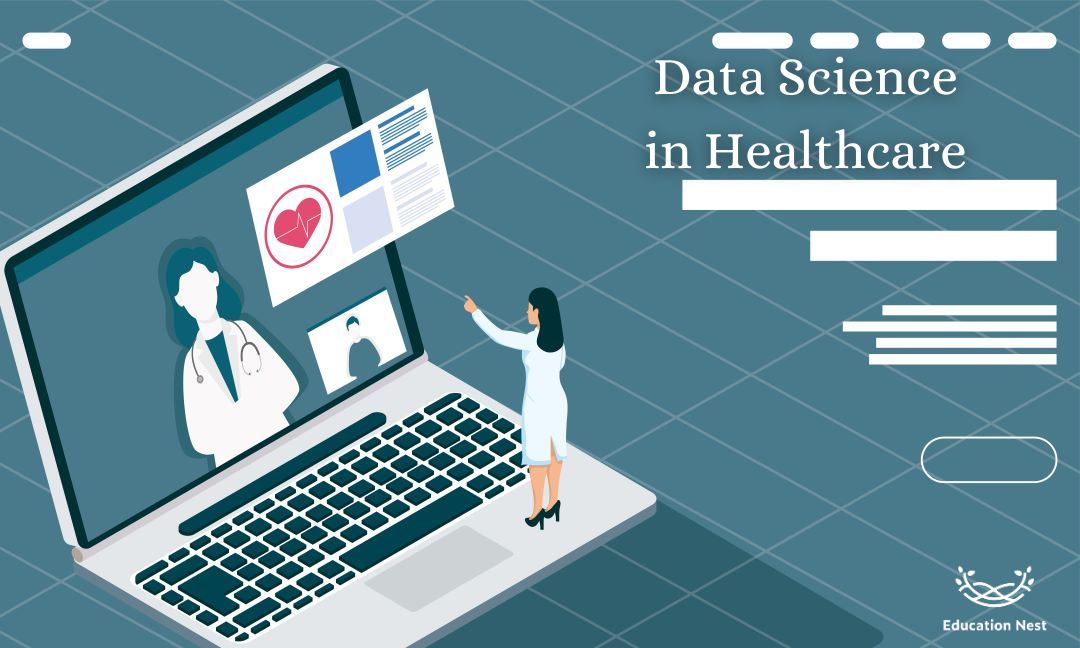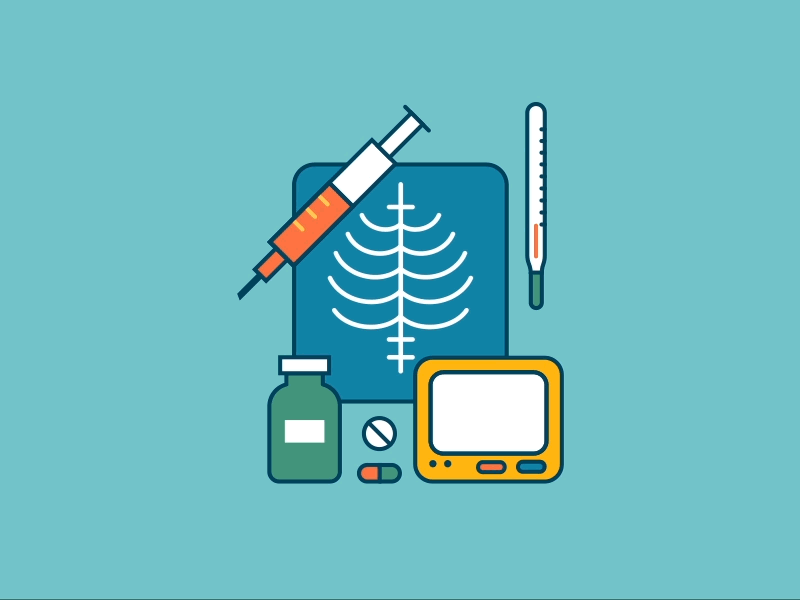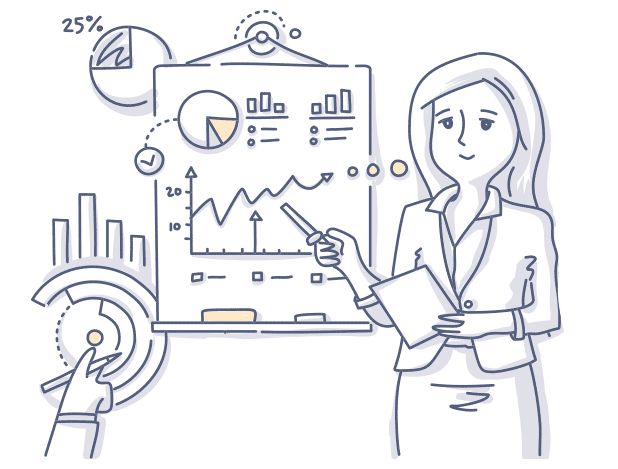
Big data is becoming increasingly common in many fields, from business to transportation. This shows how important this data is to our daily lives. Big data has revolutionized the medical field, changing even the most basic ways of monitoring someone’s health. This is similar to how it has reshaped and mapped traditionally unstructured information. Because of this, digital health startups got $3.5 billion in funding in 2017. This helped them reach their goals of changing how the world thinks about health for the better. So, in this blog, we will explore data science applications in healthcare.
We’ll also talk about how to use data science in healthcare. By the end of this blog, you will surely understand the importance of data science in healthcare.
So, without further delay, let us begin by understanding the basics.
What is Data Science?

Data science aims to use the scientific method, different technologies, and algorithms to get useful information out of raw, structured, and unstructured data.
It is a broad field that uses many tools and methods to find hidden information in databases.
Data scientists use the latest computer hardware, software, and algorithms to solve problems that involve a lot of data. AI is moving in this direction.
In a nutshell, we can define data science as:
- Finding the right questions to ask and putting the raw data to use is important.
- Using a set of advanced algorithms that save time to make a model of the data.
- Putting data into pictures helps you see the big picture.
- The ability to look at data and draw conclusions from it.
Now, let us understand what health data science is.
What is Data Science in Healthcare
Data science is now an essential part of healthcare and a game-changer for the whole field. Data science, knowledge of technology, and the tools and techniques that go with them have helped improve many infrastructures and operations. It has made both diagnosing and treating people faster. This makes the medical device work better.
The following are some of the benefits of using data science in health care:
- It helps people know what to do in times of trouble.
- Time spent treating patients is reduced.
- Effective and timely care is provided.
- It helps the healthcare system run more smoothly.
- Reduces the chances that a patient’s treatment will backfire.
Moving forward, let us come to the most important section, i.e., ‘how to use data science in healthcare’.
Also Read:
An Insight into Data Science
Applications of Data Science in Healthcare
Here, we will cover four data science applications in the healthcare industry.
Medical Imaging via Data Science
Medical imaging is the most important use of data science in the healthcare industry. Different imaging methods exist, such as X-ray, MRI, and CT scans. All these ways let people see what’s happening inside their bodies.
Before, doctors would have to look at these images by hand to find any problems. Doctors couldn’t diagnose definitively because microscopic deformities were often hard to spot.
Deep learning technologies in data science have made finding these tiny flaws in digitized scans possible. With image segmentation, flaws in scanned images can be found.
Predictive Analytics in Healthcare

The healthcare industry has a lot to gain from using predictive analytics. In the field of health analytics, it is an important topic. A predictive model takes data from the past, looks for patterns, and then uses those patterns to make predictions.
It finds patterns and links between symptoms, habits, and diseases. Then, it calculates useful information from those patterns and links.
Indeed, the use of predictive analytics has helped a lot with patient care, the management of chronic diseases, and the efficiency of supply chains and pharmaceutical logistics.
Without a doubt, population health management is becoming more interested in predictive analytics. It is a method that uses statistics to stop the spread of common diseases.
Using data science, hospitals can predict when a patient’s health will get worse. At this stage, they can take preventative steps and start early treatment to make it less likely that a patient’s condition will worsen.
In addition, predictive analytics helps keep tabs on the medical and pharmaceutical supply chains.
Data Science for Drug Discovery
Drug discovery is a highly complicated field. The pharmaceutical industry is using data science more and more to help make drugs better and take better care of patients. Testing medicines takes time, money, and a lot of work.
Algorithms based on data science and machine learning are changing this process by giving a lot of data that can be used to refine and improve the accuracy of predictions.
From patient data like mutation profiles and metadata, companies in the pharmaceutical industry can learn a lot. Researchers can then use the results of the models to find statistical links between the attributes.
Prevention and Tracking of Diseases
Data science is a vital part of keeping an eye on a patient’s health and letting them know what steps they need to take to avoid getting sick. Data scientists use powerful tools for predictive analytics to find chronic diseases as early as possible.
Moreover, diseases are often not detected in their early stages because of how slight they are.
Undoubtedly, this is very bad for both the patient’s health and the economy. As the disease spreads, the cost of treating it also rises.
So, data science is a big part of making sure that the money spent on healthcare is the best it can be.
Summary
In the end, we can say that there are many ways in which data science can be used in healthcare. Data Science has been used a lot in the medical and healthcare fields to improve patients’ quality of life and predict diseases early on.
Also, thanks to improvements in medical image analysis, doctors can now find tumors that were hard to find before because they are so small. So, data science has made a big difference in healthcare and the medical industry.
We hope this blog helps you understand how healthcare data scientists use data science. Leave a comment below if you have any questions. We’ll definitely get back to you.

